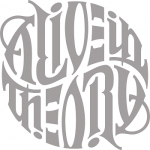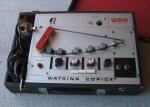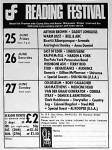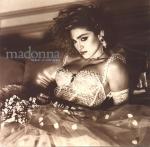 Was this crowd hard? They would have crucified Barabbas as well, but that’s Dundee for you.
Was this crowd hard? They would have crucified Barabbas as well, but that’s Dundee for you.
Once again, I blame Steve Jenner for this one. He couldn’t be satisfied with making us perform behind the decks with a semblance of professionalism on our own territory. No, he had to go out and get us gigs in Beanoland as well; which is why I found myself doing a gig at the Royal Centre Hotel on a Tuesday night in January. Now, if that’s not a sought-after gig, I don’t know what is. A gig to die for, and I nearly did.
Despite my reservations (and they were many and varied), I allowed Steve to persuade me that this would be good for my personal development as a DJ, would help to improve relations between town and gown and more importantly would generate extra beer tokens. The gig was going pretty well. OK, none of the local virgins were importuning me to indulge in post-performance amorous antics but, equally importantly, nobody had threatened to panel my coupon for me. Not a bad compromise.
This wasn’t a dancing gig. The idea was to get the crowd in the mood to visit the hotel’s nightclub, Teazers, when the bar closed. I was doing pretty well, perhaps too well because they weren’t starting to drift through to the club yet and closing time was approaching. I tried to get in as many requests as I could and I thought I was worth a 2-0 lead with 5 minutes to go. So the last record’s crucial; I need to give them something to remember me by and I succeeded only too well.
I’d already called last orders at the bar and I cued up something that I was positive they wouldn’t have heard a DJ play there before; once again my reasoning was perfect. As I wished everyone good night and hoped that they would pay a visit to Dundee’s premier nitespot, Teazers, I hit the play button on the final track of the Queen album “A Night at the Opera” which was Brian May’s multi-layered guitar instrumental version of “God Save the Queen”. Very ironic, I thought; a reference to the end of a night at the pictures. The irony works on so many different levels.
I think I single-handedly set back town and gown relations by 20 years that night. I was in the saloon and the bad guy, probably Jack Palance had just kicked open the doors. Within 2 seconds all conversation stopped and every pair of eyes in the place was on me, pouring out a hatred that went all the way back to 1314 (and I don’t mean quarter past one). I got a few boos and whistles but, thankfully, no physical violence was visited on my frail and puny body. I heard a few remarks like “student poof” and “English wanker” (now that’s ironic on more than one count because I strongly resent being labelled English).
Fortunately I escaped with my life on this occasion for 2 reasons; the lure of the dancefloor and the fact that the only place to top up the alcohol level was the nightclub. I learned 2 valuable lessons that night: don’t play any version of “God Save the Queen” (unless it’s by the Sex Pistols) in Scotland; and, never underestimate the ability of a crowd to turn from happy punters to a brooding, malevolent mob with murderous intent at the drop of a stylus. The manager wasn’t very happy. Mind you I wouldn’t be a ray of sunshine if I’d had to contend with 40 years of being called Willie Rasch (his real name, seriously) and that was the end of my brief but tempestuous career as a student ambassador to the good people of Dundee.
I still think Jenner should have known better than to think we could do these gigs and escape with our lives. I say this because of something that happened on our second full day in Dundee. We decided to sample some of Dundee’s finest hostelries in search of some foaming Scottish ales for some lunchtime refreshment and visited one of the pubs down by the docks; “The Gauger”, I think. Steve made his way to the bar, which was pretty quiet, and spent about 5 minutes trying to order beer in his best East Midlands accent. The penny finally dropped. I tapped him on the shoulder and told him to sit down. Assuming the broadest Fife accent I could muster after 8 years away, I said those words which would be repeated many times over the next 3 years: “A pint of 80/- and a pint of Tennent’s please.” Within 30 seconds, 2 foaming pints appeared in front of me and were dispatched in short order before moving on to somewhere a little more welcoming and tolerant. I wish I’d tried to pay with an English fiver. I’m as guilty as the next person of refusing to let history go (unless the next person’s a member of Settler Watch) but I wouldn’t let it get in the way of making a living.
Even the best of us get it wrong sometimes (or make slight misjudgements). Mr Jenner himself nearly provoked a riot in the Tav Bar by playing a stirring Hughie Green version of “Land of Hope and Glory” to bring the evening to a very hostile close. And there’s no way of denying that one because it was immortalised on a TDK cassette and is now available on shiny digitally remastered CD. I like to listen to it now and again because it makes me feel a little bit better about my own brush with the baying nationalist mob in the Royal Centre.
 Buford Pope’s American influences shine through on “The Waiting Game”. His introduction to American music was Bob Dylan but the most obvious comparison vocally is the high register vocals of Neil Young. There’s a reference in the album’s second song, “Hey Hey Aha”, to the difficulties of songwriting (and a subtle nod to Shakey again) and writer’s block, but the songs all worked out fine in the end and the calling card for “The Waiting Game” is the way they have been arranged. And that’s apparent from the very start.
Buford Pope’s American influences shine through on “The Waiting Game”. His introduction to American music was Bob Dylan but the most obvious comparison vocally is the high register vocals of Neil Young. There’s a reference in the album’s second song, “Hey Hey Aha”, to the difficulties of songwriting (and a subtle nod to Shakey again) and writer’s block, but the songs all worked out fine in the end and the calling card for “The Waiting Game” is the way they have been arranged. And that’s apparent from the very start.
“America” (a lyrical co-write with Mark Drake) is the collaboration that Neil Young and The Blue Nile haven’t quite got round to yet. It’s an atmospheric love song to America with a big bassline and a new frontier theme with songsters replacing pioneers. The high tenor range of the voice, the melancholy subject matter and the country-rock feel of “Hard Life” make vocal comparisons with Don Henley difficult to avoid, but it’s difficult to see how that’s a bad thing. I mentioned arrangements earlier and the most innovative has to be “A Hundred”.
The minimalist production is built around a bass drum on one and three and a layered handclap on two and four which repeats remorselessly throughout the song as the blues builds up with the addition of bass and banjo. It hints at the foot stamps of Brian May’s percussion innovation for “We Will Rock You” (a reference you might not expect to hear on an Americana album). Incidentally, a country, honky-tonk reworking of the song, listed as “Ninety-Nine” closes out the album.
It’s the kind of album that you get when an someone without the baggage of a ‘scene’ or ‘movement’ to contend with (living in a remote part of Sweden) can concoct by taking original American influences and subject matter and melding them with elements from outside this genre to produce something that’s unique. It’s an intriguing listen.
“The Waiting Game” is out now.
 This combined effort from singer Kirsty Mac, multi-instrumentalists Paul Ayre and Tony Draper, known collectively as Alive in Theory, has a lot going for it. There’s some great playing, the vocal performances are pretty powerful and the songs are mostly pretty strong, so where do we start? At the very beginning, it’s a very good place apparently. Actually the opening song “Alive in Theory” isn’t a bad summary of the album; it’s full of drama, it has a wide dynamic range and a sense of menace. The intro has a feel of “Radio Gaga” and, strangely enough, there’s a little guitar fill which is pure early seventies Brian May. The vocals across the album hint at a Gothic Kate Bush, with maybe a little hint of Kim Carnes in there as well (the eighties drums and brooding synths of “Lightning” have a strong feel of “Bette Davis Eyes”). Now that wasn’t too bad for you was it? But it’s not the whole story because there are a few reservations.
This combined effort from singer Kirsty Mac, multi-instrumentalists Paul Ayre and Tony Draper, known collectively as Alive in Theory, has a lot going for it. There’s some great playing, the vocal performances are pretty powerful and the songs are mostly pretty strong, so where do we start? At the very beginning, it’s a very good place apparently. Actually the opening song “Alive in Theory” isn’t a bad summary of the album; it’s full of drama, it has a wide dynamic range and a sense of menace. The intro has a feel of “Radio Gaga” and, strangely enough, there’s a little guitar fill which is pure early seventies Brian May. The vocals across the album hint at a Gothic Kate Bush, with maybe a little hint of Kim Carnes in there as well (the eighties drums and brooding synths of “Lightning” have a strong feel of “Bette Davis Eyes”). Now that wasn’t too bad for you was it? But it’s not the whole story because there are a few reservations.
Musically, “Unconditional”, isn’t bad but it demonstrates a few of the album’s downsides. The lyric has a feel of a rhyming exercise that doesn’t convey too much meaning, the vocal is a bit melodramatic and it follows a format that’s repeated through the album of a gradual layer-by-layer build-up of songs. It’s not that any of these things make it a bad album, more that without them, it could have been a better album. Glad we got that out of the way.
On the upside, the driving power of “Bethany” and the combination of distorted guitars and synth sequences works well and would fit in well in a vampire TV series while using an apocalypse as metaphor for a broken relationship in “We Are All Alone” is fairly effective. The album’s closer “The Other Side” stays just the right side of the bombastic line with channel-hopping synths, pumping bass, some Doors-style piano and a final dramatic held vocal note. If you like a bit of drama, musically and lyrically, you’re in the right place.
“Abandon” is released on Friday March 3 on Ultraviolet Records (ULTRA001-2017).
We haven’t heard too much from our very own Grinch this year; I suppose that means the restraining order worked. Unfortunately, he’s just reminded us that we have a contractual obligation to publish his annual High Five contribution. Feel free to read this, but please bear in mind that it contains bad attitude from the outset.
Why does every performer these days want to use a loop pedal? It was a challenge in the seventies when John Martyn and Brian May used WEM Copicats with real tape loops (well, where did you think the name came from?) to beef up their guitar noodlings. It was proper difficult then because you never knew when the tape would wear out or jam. Then KT Tunstall went on “Later” and suddenly every cheapskate player and singer wants to ditch the rhythm section and everyone sounds like everyone else. It’s a nice gimmick but it’s not a substitute for real players. Just leave the looper at home; it’s not big and it’s not clever.
What’s going on with festivals now? When I was a lad, you only had Reading (Jazz and Blues) Festival to contend with; Glastonbury was just a couple of hundred comatose stoners looking for ley lines and T in the Park wasn’t even in the horizon for Stuart Clumpas. Festivals only happened in the British summer month(s) and featured bands that everyone knew. And now there are mainstream festivals, corporate festivals, boutique festivals and bonkers local festivals with tribute bands, has-beens and newcomers. But watch your step; if you buy a ticket for a festival, buy it with a credit card, because there’s a pretty good chance it won’t actually happen – your choice.
I know, it’s a shocker; Madonna has a diva strop. Who would have predicted that? Ms Ciccone gets on stage just under an hour late in Manchester and what does she do? Well, most of us would apologise, wouldn’t we, but not Madonna Veronica Louise. No she rips into the booing audience and calls them diva bitches. There’s a lesson to learn here; if you have all of your light show (and your backup vocals and Autotune settings) stored electronically, then back the fecking things up, and not just once. Don’t use data loss as an excuse, because it’s no excuse, especially if you offer it up two days later. We all screw up; apologise and get over it. Your audience are paying your wages; never, ever forget that.
Well, we were all blown away by the stupendous Tidal launch this year, weren’t we? A motley bunch of rich musicians (and isn’t that Ms Ciccone again?) investing in a scheme to make themselves even more money, that’s just what we need isn’t it? The launch event looked like a failed PowerPoint training exercise, proving that musicians should stick to what they do best. It’s been pitched as an attempt to generate decent loyalties for writers, but it smells of elitism and the music-buying public have ignored it in their droves. If you still believe that music has any value, you can ignore streaming services completely and buy physical copies of your music.
So we’re all supposed to be streaming now and no-one wants to buy physical copies of music any more. Well it’s a bit confusing, but I’ll do my best to make it simple and use small words. CDs: apparently they’re on the way out at the same time as they’re on the way back in again. If you believe the insiders, CDs are about to become a premium product, for the second time as a medium for ultra-high quality sound, while vinyl sales (and record deck sales) are still on the rise in 2015. If the public are showing signs of paying to actually own musical artefacts, then I’m well chuffed, but my inner cynic starts to get twitchy when Tesco are selling vinyl again and ‘classic’ albums that were originally released on vinyl, then cassette, then CD, then online as MP3s and streamed versions are back to vinyl again. I’m just pleased I kept hold of all my old 8-tracks.
 There’s a link between all of the members of Space Elevator , apart from the fact that they’re all very good musicians (and I always include singers in that category); all of them have, at some time, been involved the Ben Elton/Queen musical, “We Will Rock You” which played for twelve years at London’s Dominion Theatre before closing in May of this year. I know that some music fans are pretty sniffy about musical theatre, but the fact is that you have to be a very, very good (and consistent) musician to play in such a high-profile production as this. So, what I’m saying is that the five members of Space Elevator are musicians of the highest order and, putting “We Will Rock You” aside, they have worked with some of the biggest names in modern music.
There’s a link between all of the members of Space Elevator , apart from the fact that they’re all very good musicians (and I always include singers in that category); all of them have, at some time, been involved the Ben Elton/Queen musical, “We Will Rock You” which played for twelve years at London’s Dominion Theatre before closing in May of this year. I know that some music fans are pretty sniffy about musical theatre, but the fact is that you have to be a very, very good (and consistent) musician to play in such a high-profile production as this. So, what I’m saying is that the five members of Space Elevator are musicians of the highest order and, putting “We Will Rock You” aside, they have worked with some of the biggest names in modern music.
Space Elevator comprises The Duchess (vocals), David Young (guitar), Neil Murray (bass), Elliott Ware (keyboards) and Brian Greene (drums) and their first album “Space Elevator” is out now and, in the best possible way, it’s what you would expect from a group of musicians with their background and experience. The songs are well constructed, the performances are all faultless and the whole album is underpinned by sense of theatricality and fun that’s so often missing from serious (or po-faced and pretentious) rock albums. And, there are quite a few segues from one song to the next, so don’t even think about listening to it on shuffle.
It’s not too difficult to pick out reference points either, musical and lyrical; “We Are the Losers” features layered Brian May-style guitars, massed vocals and changes of tempo and instrumentation before the music hall piano leads into the anthemic finale and straight out into “I Will Find You (Gallifrey Dreams)”. This epic pop ballad provides a musical setting for the Dr Who/Rose love story, opening with gently picked acoustic guitar and close-miked vocal and building up to a chorus with a great guitar hook and The Duchess’s vocal cords set to stun. The album’s first song “Elevator” and “More Than Enough” both use highly processed spoken intros representing an automated lift voice and radio announcer respectively, while “Little White Lies” and “We Can Fly” rely on tempo changes to keep the attention focussed. Lyrically, the album is shot through with the theme of looking to the future, which forms the basis of “Move On” and “Really Don’t Care” and also pops up elsewhere. The Duchess even has a “Killer Queen”-style Freddie Mercury moment with “Oils and Bubbles”, featuring the memorable lines: ˊI’m so clean, scrubbed to a sheen, I’m a total hygiene queen; it’s the only way I’ll be bedded, to cleanliness I’m totally weddedˋ, which wouldn’t sound out of place in “The Rocky Horror Show”, but fits perfectly with the high camp of the piano backing, the guitar solo and the layered backing vocals in the chorus.
“Space Elevator” isn’t an album that will allow your attention to wander; you’re never more than eight bars from another surprise, whether it’s a tempo change, a guitar fill, a breakdown or an unexpected segue into the next song. The rock purists will object to the theatrical elements and the production, but if that bothers you, then stick to Dumpy’s Rusty Nuts. Throughout the album, The Duchess’s dynamic range is matched by superb playing and arrangements full of hooks which just won’t quit. Go on, you know you want to.
Out now. Available from Amazon and the band’s website.
 Normally the Riot Squad wouldn’t be having much to do with sporting events, but we’re willing to make an exception in this case because of the cultural significance of this event (and its sibling the opening ceremony). This was billed as an event with a playlist which was more Heart FM than Radio 1 and that description was pretty much on the money. We got performances from British pop legends Ray Davies, Madness, Pet Shop Boys, Annie Lennox (in a piece which was a bit like a live version of a bad Duran Duran video), Queen (half of them in person, Freddie on film), Take That (with one notable exception), the Spice Girls (all of them) and The Who (well, Daltrey and Townshend).
Normally the Riot Squad wouldn’t be having much to do with sporting events, but we’re willing to make an exception in this case because of the cultural significance of this event (and its sibling the opening ceremony). This was billed as an event with a playlist which was more Heart FM than Radio 1 and that description was pretty much on the money. We got performances from British pop legends Ray Davies, Madness, Pet Shop Boys, Annie Lennox (in a piece which was a bit like a live version of a bad Duran Duran video), Queen (half of them in person, Freddie on film), Take That (with one notable exception), the Spice Girls (all of them) and The Who (well, Daltrey and Townshend).
We also got a pretty varied selection of newer artists covering a pretty wide spectrum of current British popular music. How about Emeli Sandé, One Direction, Elbow, George Michael, Kaiser Chiefs, Ed Sheeran, Fatboy Slim, Jessie J, Tinie Tempah, Taio Cruz, Beady Eye and Muse? It’s not comprehensive, but it did give a pretty good snapshot of the contemporary British music scene.
Any attempt to summarise British popular culture over the last fifty years in three hours is pretty much doomed to failure from the start, but this was a brave attempt. And it wasn’t just about the music; we had fashion, comedy, dance and drama as well. We also had the unsavoury spectacle of politicians trying to hijack the event for their own ends, and we really don’t need to see the Prime Minister and the Mayor of London idiot-dancing to the Spice Girls to boost their credibility with the voting public. Honestly, we’re not as stupid as you seem to think we are (and we didn’t see you strutting your stuff to the bhangra or disco material either, so not so inclusive at all really). And we had Matt Bellamy fronting Muse in his usual quiet style with keyboard and guitar virtuosity only to be trumped by Brian May with a routine which he’s been doing for the best part of 40 years (although not always with Jessie J to front it).
The event ended with a Who medley (you can make up your own punchlines about growing old here) and it was all over for another four years; apart from the online feedback and some of that was pretty horrific, particularly the posts about Gary Barlow. We can all have our own opinions about the worth of someone’s work (and for what it’s worth, I think Gary Barlow’s a really gifted songwriter) but it’s never acceptable, under any circumstances, to attack a performer because they’ve suffered a personal tragedy. I’m not going to attempt to communicate my disgust to you because Jason Manford has already done that in a way that won’t be bettered. Those personal attacks left a bitter taste after a hugely celebratory event.
It’s interesting to look at the Beatles influence on the opening and closing ceremonies; the opening ceremony was influenced by McCartney, while the closing ceremony was influenced by Lennon, but we didn’t hear the best work of either songwriter (apart from fleeting references to “A Day in the Life” in the closing ceremony).
It seems quite fitting to bookend the London Olympic Games with those two British pop legendOn balance, the closing ceremony was a brave attempt to capture fifty years of British of British popular culture which worked most of the time and, when it didn’t, it failed heroically. And as an added bonus, most of the artists involved in the ceremony performed really well in this week’s singles charts, even those that didn’t appear personally. It seems that there are some things that we Brits are really quite good at.







